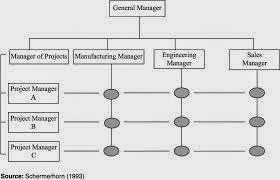CONCEPT OF GLOBALIZATION
Globalization is a
process of interaction and integration among the people, companies, and
governments of different nations, a process driven by international trade and
investment and aided by information technology. This process has effects on the
environment, on culture, on political systems, on economic development and
prosperity, and on human physical well-being in societies around the world. In
another way it is expressed as below.
Forms of Globalization:
Economic Globalization:
· It
is increasing global inter linkages of the markets in good, services, capital,
and finance. It is about liberalization, deregulation, privatization, and
declining cost of transport and communication.
· A
worldwide economic system that permits easy movement of goods, production,
capital, and resources (free trade facilitates this) Example: NAFTA, EU,
Multinational corporations
Political globalization:
· The
mutual framework by exchanging the views and ideas of implementing and billing
the policies, plans and other implementation between countries. The exchange of
views , experience in establishment of legal system, protection of women’s
right, human rights, child rights, free media, sustainable development,
democratic governance, and etc.
· countries
are attempting to adopt similar political policies and styles of government in
order to facilitate other forms of globalization
· The
UN has belied expectations, but a number of regional organizations like
European Union, ASEAN, APEC and SAARC, and multicultural economic organizations
such as WTO have come up.
Socio cultural Globalization:
· It
is worldwide assimilation of cultural values, beliefs, and customs through
communication technologies, media, tourism and consumption patterns and
exchange of ideas.
· A growing belief that we are all global citizens
and should all be held to the same standards – and have the same right
Natural (Ecological/ Environmental)
Globalization:
· seeing
the Earth as a single ecosystem rather than a collection of separate ecological
systems because so many problems are global in nature
· In
issues like global warming, ozone layer depletion, loss of bio diversity,
Trans- border pollution. The idea of conserving the world environment by
harnessing water, less use of non-renewable resources, wildlife management,
controlling air pollution, etc.
Technological Globalization:
· Emergence
of ICET. Technologies developed in one part of the world get instantly globalized
and used in other parts.
· Connection
between nations through technology such as television, radio, telephones,
internet, etc. It was traditionally available only to the rich but is now far
more available to the poor. Much less infrastructure is needed now
Thus,
Globalization (or globalisation) is the process of international integration
arising from the interchange of world views, products, ideas, and other aspects
of culture. Advances in transportation and telecommunications
infrastructure, including the rise of the telegraph and its posterity the
Internet, are major factors in globalization, generating further
interdependence of economic and cultural activities.



Comments